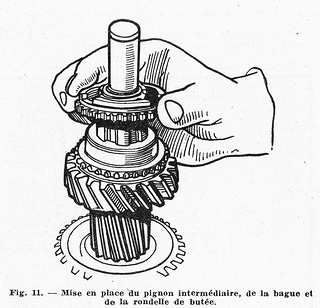 Have you ever wondered if you studied the right discipline?
Have you ever wondered if you studied the right discipline?
That's something that my colleagues and I debate often. When you chose your field of study, you don't really know anything about what a [fill in discipline here] engineer really does in the run of a day. It's the kind of thing you can only figure out by doing it. That means you've got to chose a discipline and go for it, and there's no way of knowing for sure if you're going to be into it.
This leads to a lot of engineers who feel as though they're not as fulfilled by their work as they'd like to be, which is less than ideal.
Luckily enough, a discipline is not a life sentence. You can - and should - realign your career if you think you'd be a happier, more productive person if you were doing something different.
I recently discovered a new discipline myself, and I haven't been this excited about my career since since graduation day.
My Story
I was recently fortunate enough to get a promotion at work. The company I work for builds trains. With my new role, it's my job to make sure that all the various train systems - brakes, propulsion, controls, etc. - play nicely together. I help to make sure the pieces fit and that at the end of the day we've built a working train instead of just a random collection of train parts.
The new role represents a big change for me. I studied electrical engineering in school and have been practicing in that field since graduating. My new role isn't really a departure from electrical engineering, but it definitely represents a new focus. The new focus is a discipline in and of itself called systems engineering.
Systems engineering is relatively new. It focuses on - you guessed it - design of systems as a whole, rather than the design of the constituent parts. Systems engineers care about making sure new products and services meet the needs of the client. They manage requirements, integrate systems, and bridge the gap between engineering and business.
I love it.
It's a field that I didn't even know existed just a few months ago, and now that I've been given an opportunity to dig into it, I'm over-the-moon excited about developing my expertise. I've already traded my IEEE membership for an INCOSE. It scratches an itch I have for big-picture thinking, planning, and integrating business skills into engineering work.
What about you?
It occurred to me that other engineers might also have some "secret discipline" that they might love, if only they knew about it.
Do yourself a favour - look into it. You might discover that there's something else out there that suits your personality, skills, and interests much more closely than what you're doing now.
As a start, I recommend you check out O*Net Online to see what disciplines they list. Also check out your local university or college to see what courses they're offering. Maybe there are some classes you could sit in on to see what they're all about. Attend professional society meetings to talk to other people and figure out what they do. LinkedIn can also be a powerful tool for seeing what kinds of engineering jobs there are.
It's also important to look into your local engineering regulatory body's rules around practicing within your discipline. You'll probably need to get additional formal education if you'd like to move into a very different technical field, but if you're making a move into something you love, why not get the training? It's part of the adventure.
Moving forward
There's nothing to lose by taking a look at your own career and discerning whether or not you're truly fulfilled by your work. It's important to love what you do. There's huge opportunity for you to be a happier, healthier person if you just find that thing that you can be passionate about.
Take action today and ask yourself - is there something better out there? You might be surprised by what you find.
About Pat Sweet
 Pat Sweet is a Professional Engineer working in Ontario, Canada. He’s a full-time vehicle engineer focusing on commuter train electrical subsystems and the author behind the Engineering and Leadership blog, where he shares his thoughts and experiences on leadership, productivity and career advice for engineers. Go to Pat’s blog now to get your free copy of his free career guide –The 7 Habits of a Highly Ineffective Engineer.
Pat Sweet is a Professional Engineer working in Ontario, Canada. He’s a full-time vehicle engineer focusing on commuter train electrical subsystems and the author behind the Engineering and Leadership blog, where he shares his thoughts and experiences on leadership, productivity and career advice for engineers. Go to Pat’s blog now to get your free copy of his free career guide –The 7 Habits of a Highly Ineffective Engineer.
Photo credit: Flickr/ Shapenoid